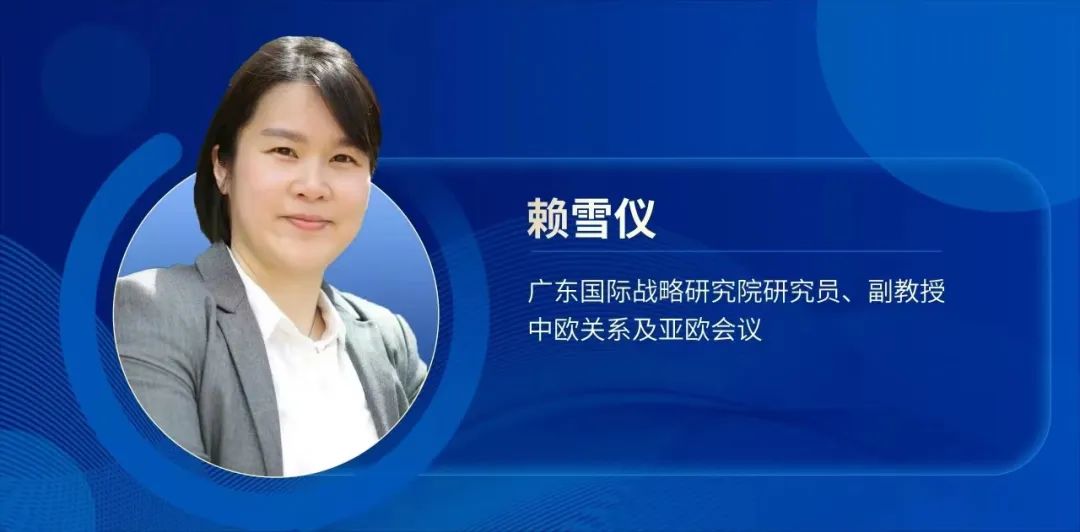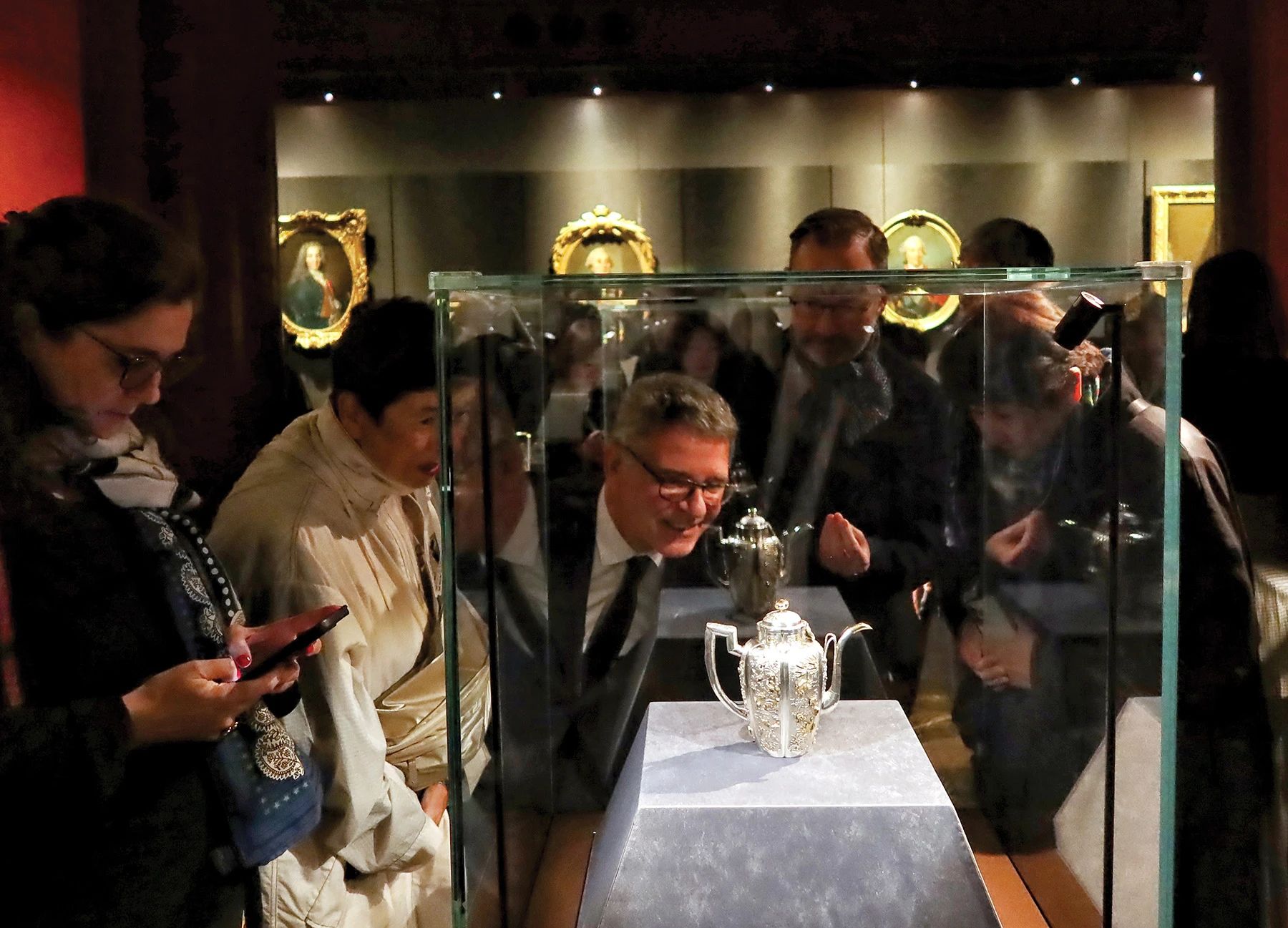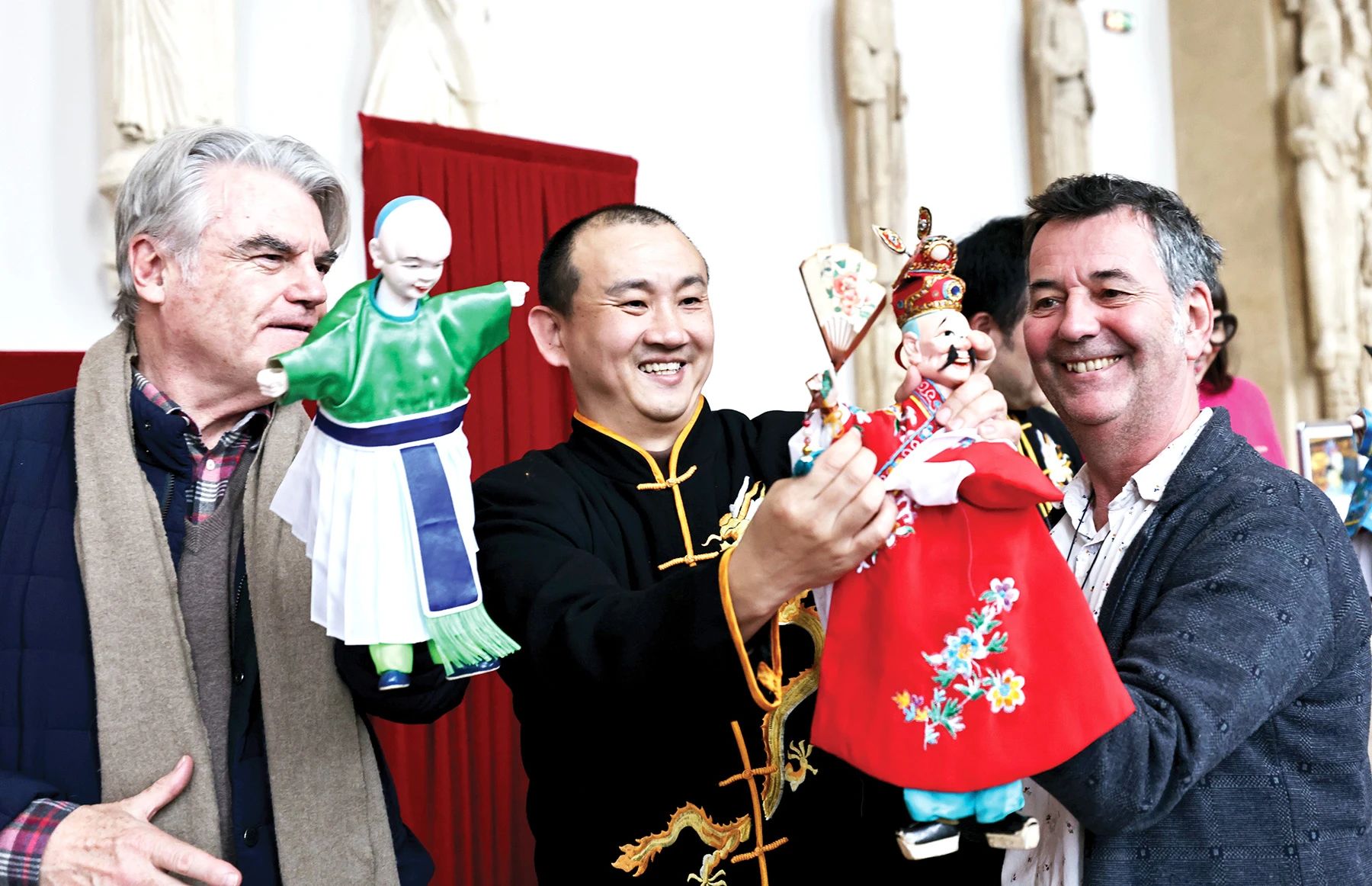自1964年建立外交关系以来,中法两国的关系已经走过了60年的辉煌历程,合作领域不断拓展和加深,标志着双边关系的重要里程碑。两国间的合作日益紧密,高层交流频繁,经贸投资大幅增长,文化交流精彩纷呈。值此中法建交60周年之际,我院赖雪仪副教授接受了《China Daily》的专访,访谈内容已于5月3日以《Fruitful alliance》为标题发表。
在文章中,赖副教授强调了中法在经济领域深化合作的巨大潜力,特别是在绿色能源转型、核能以及旅游业等方面。尽管中欧之间存在着影响双边贸易的紧张态势,她依然指出中法在全球治理层面有着广阔的合作空间,并强调尽管在文化、历史和政治背景上存在差异,两国仍然能够在国际舞台上实现紧密合作。
以下为原文转载。

Fruitful alliance
In the early morning of Jan 27 this year, Lu Shaye, the Chinese ambassador to France, and two busloads of guests embarked on a three-hour ride from Paris to Colombey-les-Deux-Eglises in northeastern France.
The trip to the hometown of General Charles de Gaulle, where a memorial site and museum is located, was to pay tribute to the former French leader as the two countries marked the 60th anniversary of their diplomatic ties.
On Jan 27, 1964, China and France announced in a joint communique the establishment of diplomatic relations, making France the first major Western country to do so at the height of the Cold War.
At a news conference on Jan 31, 1964, then-president de Gaulle said: “The French Republic has decided to place its relations with the People’s Republic of China on a normal, in other words, diplomatic level.”
Using a Chinese idiom that suggests that when one drinks water, he or she must not forget where it comes from, Lu said the event on the exact day 60 years later was of “special significance”.
“Sixty years ago, Chairman Mao Zedong and General de Gaulle, with their excellent strategic vision, broke the ice of the Cold War and crossed the divide between different blocs to make a historic decision to establish diplomatic relations at the ambassadorial level,” Lu told a crowd attending the event.
“Gaullism has a broad and profound connotation, but the most profound core is of independence,” Lu said in fluent French, adding that is a shared value of Chinese and French nations.
While de Gaulle never got a chance to visit China before he died in 1970, his great-granddaughter, Nathalie de Gaulle, said thanks to his building of a relationship between the two countries 60 years ago, France and China still live with his legacy today.
“He was a quite pragmatic man. He was a visionary person,” she said, adding that Charles de Gaulle would be “immensely impressed” if he could visit China today.
Georges Pompidou, a longtime prime minister under president de Gaulle, became the first French president to visit China, in 1973, and also the first Western European head of state to visit China while in office.
Former French president Jacques Chirac visited China four times while in office from 1995 to 2007. He was known as a passionate lover of Chinese history and culture and was the first Western leader to visit the Terracotta Warriors in Xi’an. Chirac also impressed many Chinese with his opposition to the Iraq War in 2003.
France’s current president, Emmanuel Macron, has voiced hopes of visiting China once a year. During his last visit to China in April 2023, he said bilateral relations have maintained steady and sound growth.

Guests view one of about 200 exhibits on show at the Beijing Palace Museum on April 1 during an event linking the institute with France’s Palace of Versailles. (JIANG DONG / CHINA DAILY)
Macron said that despite their different development models, the two countries have respected each other, communicated with candor, and achieved mutual benefits in their wide-ranging cooperation.
The French leader has repeatedly stressed the importance of strategic autonomy and said shortly after he visited China in 2023 that the European Union should not be a US vassal, a message he reiterated on April 25 this year in a speech at Sorbonne University in Paris.
“France is an important strategic power in Europe and the West. Its tradition of being independent has served as a pillar for relations between China and France and between China and the European Union,” said He Zhigao, a researcher at the Institute of European Studies in the Chinese Academy of Social Sciences.
The bilateral relationship has developed by leaps and bounds in the past 60 years. China and France established a comprehensive strategic partnership in 2004 and they have maintained three high-level dialogue mechanisms for strategic, economic and financial, and people-to-people exchanges.
France has led the Western nations in cooperating with China in the fields of civil nuclear energy, aviation, and aerospace, and third-party market cooperation in the fields of clean energy, infrastructure, and finance in Asia, Africa, and Latin America. France was also the first Western nation to sign an agreement with China on science and technology cooperation.
France is China’s third-largest trade partner in the EU after Germany and the Netherlands. China is France’s largest trade partner in Asia and the seventh-largest trading partner globally.
In 2023, total trade between China and France reached $78.94 billion, about 800 times more than the level 60 years ago.
More than 7,000 French companies have invested in China.
In Tianjin, Airbus broke ground for its second final assembly line last September to cash in on the fast-growing Chinese market. The project, which is expected to be operational by the end of 2025, will be able to manufacture both A320 and A321neo aircraft, Airbus’ newest single-aisle aircraft. Airbus boasts a 54-percent market share in China.
STMicroelectronics, a semiconductor giant of French-Italian origin, inked an agreement last year with China’s Sanan Optoelectronics to establish a new 200-millimeter silicon carbide manufacturing joint venture in Chongqing.
Meanwhile, Chinese companies are also bullish on France, especially in high-tech and green industrial sectors, which hold the key to France’s latest reindustrialization strategy.
Huawei is building a 200-million-euro ($214 million) mobile phone network equipment manufacturing factory in France’s Alsace region.
Envision AESC, a subsidiary of China’s Envision Group, is constructing a 2-billion-euro factory in Douai in northern France that will supply the Renault Group with electric car batteries.

Visitors to a Paris museum try out traditional puppets from Zhangzhou, Fujian province, in February 2024. (PHOTO / XINHUA)
China’s XTC New Energy Materials has set up a joint venture with France’s Orano to produce cathode material and precursors used in electric car batteries in a factory in Dunkirk. The expected investment of 1.5 billion euros is expected to create 1,700 jobs.
“Economically, China and France can achieve much more via cooperation in fields like green transition, nuclear energy, and tourism,” said Lai Suetyi, an associate professor at the Center for European Studies at Guangdong University of Foreign Studies.
However, the bilateral trade ties have been affected by tensions between China and the EU.
Jochum Haakma, chairman of the EU-China Business Association, said the trade relationship will be one of the most important topics on the agenda during President Xi Jinping’s state visit to France in early May.
He was referring to the EU’s anti-subsidy investigation of Chinese electric vehicles and China’s anti-dumping investigation on brandy, which comes largely from France.
“It is in the interest of both nations (China, France) that European investments will stay in China and that the EU/France will stay open for Chinese FDI on a reciprocal basis,” Haakma said.
He stressed the significance of the upcoming summit and its potential to strengthen EU-China relations amid global geopolitical complexities.
“The discussions between the two leaders promise to advance economic cooperation and broader diplomatic efforts toward peace and stability, underscoring the mutual desire to deepen ties and foster a partnership rooted in shared interests and strategic collaboration,” Haakma said.
The year 2024, which has been designated as China-France Year of Culture and Tourism, is set to be a fruitful year for people-to-people exchanges, with a long list of events throughout the year.
In December, China started providing 15-day visa-free entry for French passport holders, while France has also put forward measures to facilitate arrivals from China.
On March 22, the Beauval Zoo in central France unveiled a 2.5-meter-tall bronze sculpture of giant panda Yuan Meng being held in his mother’s arms. Yuan Meng, the first giant panda cub born in France, returned to China in July 2023. French first lady Brigitte Macron, known as Yuan Meng’s godmother, saw him off at the Charles de Gaulle airport.
Chinese and French cities and provinces have established 111 pairs of sister-city ties.
A total of 148 Chinese colleges and universities offer French language majors. Meanwhile, some 46,000 Chinese students have enrolled in French colleges and universities.
In the Chinese mainland, there are 14 Alliance Francaise centers promoting the French language and culture. France hosts 18 Confucius Institutes and one Confucius Classroom teaching Chinese language and culture. About 110,000 French students are studying Chinese.
Cecile Claris, head of the Institution Saint-Joseph de Roquebrune near Nice, said her school has received great support from the Confucius Institute Cote d’Azur to help immerse its students in Chinese culture.
“I’m so grateful. In the last three years, the Confucius Institute has come to our school to hold various Chinese cultural events and achieved great success. Students like them very much,” she said.
China and France are both permanent members of the UN Security Council and nuclear powers.
China played a critical role in helping reach the Paris climate accord in 2015. On Nov 24, 2023, the China-France Carbon Neutrality Center was inaugurated in the presence of Chinese Foreign Minister Wang Yi and then-French Foreign Minister Catherine Colonna to send a strong signal ahead of COP28 — the United Nations climate conference — in Dubai.
Hot spot issues such as the Russia-Ukraine conflict are expected to be one of the key topics when Xi meets Macron.
Lu, the Chinese ambassador to France, admitted in a speech at the French Institute of International Relations on April 19 that China and the EU do not see eye to eye on the Ukraine crisis.
He said that China sees Russia and the EU both as friends and partners, and will not add fuel to the fire.
“China will not align itself with the EU to hurt its relations with Russia, nor will it support one side to fight the other. China will remain objective and neutral and will promote peace talks. This is the biggest support for Europe,” Lu said.
“Despite their differences in culture, history, and political systems, China and France have huge space for cooperation on global governance,” said Ding Chun, director of the Center for European Studies at Fudan University.
本文源于《China Daily》。


